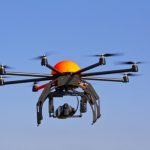
Amazon Echo devices spy on you in your own home… police are now trying to acquire those recordings
Monday, January 09, 2017 by JD Heyes
http://www.policestate.news/2017-01-09-police-are-tapping-amazon-echo-devices-to-function-as-spies-in-your-own-home.html

Well, it sure didn’t take long for the authorities to find yet another way to use technology—specifically “the Internet of things”—to violate our constitutional right to privacy.
As reported by EnGadget, police in Arkansas want to know if one of Amazon’s Echo devices, which are constantly connected to the Internet and listening for the sound of voice commands and questions, might have overheard something that can help them solve a murder case.
Only, they will have to get a court—or Amazon, voluntarily—to allow them access to loads of information in addition to whatever the device might have “overheard” and, thus, stored.
The report said that police in Bentonville, home to retail giant Walmart, have issued a warrant to Amazon, ordering the company to turn over any audio or other records from an Echo that belongs to James Andrew Bates; he is set to go to trial for first-degree murder for the death of Victor Collins next year.
So far, Amazon has declined to give police specifics on the information that the Bates Echo device logged on its servers, but the company has turned over information regarding Bates’ account info and purchases. And cops say they’ve managed to pull data off of the speaker, though it is not clear what they were able to access.
Always on, always ‘listening’ and tracking and recording…
Because the device is always “on” and connected to the Internet, police say they are looking for any audio that the speaker may have picked up the night of the alleged murder. Though the device is activated by keywords, it is not uncommon for the IoT gadget to be alerted to listen in by accident.
Or, maybe, even by design.
Police said that Bates had a number of other smart home devices, including a water meter, which showed that 140 gallons of water had been used between 1 a.m. and 3 a.m. the night Collins was found dead in Bates’ hot tub. And who says there is nothing invasive about smart meters?
Anyway, investigators have theorized that Bates used the water to wash away evidence of what happened on his patio. But retrieving the data from the smart meter and request for additional data from the Echo is raising major issues about privacy, which seems to be all but gone in the Digital Age.
Frankly, at a time when there are any number of devices tracking and automating our habits—at home, at work, in public—should that data be available for the taking by law enforcement for use in criminal cases? Some, especially the government, believes it should be; but privacy experts and civil libertarians think that any information not immediately pertinent to such investigations should remain off-limits, as the founders intended.
Look for more attempts in the future by police and federal authorities to get their hands on as much of our personal information as possible.
J.D. Heyes is a senior writer for Natural News and News Target, as well as editor of The National Sentinel.
Sources:
Tagged Under: Tags: Amazon Echo, murder investigation, Police, privacy





